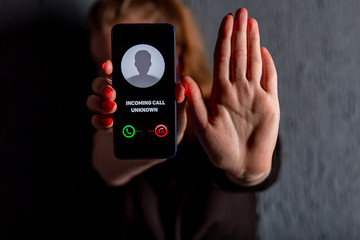
According to the Australian Communications and Media Authority (ACMA), 660 million fewer scam calls have been delivered to Australians since the new rules in December 2020, requiring telcos to detect, track, and block fraudulent calls.
According to reports by the ACMA, telcos blocked 110 million scam calls from April-June alone in 2022. Scam call blocking has had an impact; The percentage of consumers reporting scams to Scamwatch has dropped 50% since earlier this year.
“This is a great result, thanks to the hard work of our members who have put in place new technical solutions to combat scam callers,” said Communications Alliance CEO John Stanton.
The ACMA has also been working with international counterparts to track down and disrupt the networks behind these scam calls, which often originate from overseas.
“We are also pleased to see that the industry’s efforts to disrupt scam callers are starting to show results, with fewer people reporting scammed,” said ACMA Chair Nerida O’Loughlin.
“We will continue to work with industry and international regulators to ensure that these troublesome calls are stopped at the source.”
The government has also proposed new laws that would make it a criminal offence to make a misleading or deceptive telemarketing call, with penalties of up to 10 years imprisonment.
“Australians should be able to answer their phone without worrying about being scammed,” said Minister for Communications Hon Michelle Rowland MP.
“That’s why the government is taking tough new action, including making it a criminal offence to make a misleading or deceptive telemarketing call.”
Despite the ACMA’s claims of “these encouraging indicators,” it states that scammers are having more difficulty targeting Australians via their phones and that some phishing campaigns are becoming increasingly sophisticated to deceive people and avoid being discovered.
“Australians must remain vigilant against frauds and continue to protect themselves and their friends and family from scammers, particularly if they are in vulnerable situations.” the ACMA advises.
The best defence against scam calls is still to hang up if you receive one. If you have any doubts about a call, you can always check with the company or organisation that the caller claims to be from using contact details that you know to be legitimate. You should never give out personal information or money to someone you don’t know and trust.
“Australians should also be aware that scam call blocking is not a silver bullet,” the ACMA warns. “Scammers can still target you through other channels, including email, text messages and social media.”
If you think you’ve been the victim of a scam, you can report it to the ACMA or Scamwatch. You can also find more information on protecting yourself from scams on the ACMA website.

More Stories
Killnet and AnonymousSudan Collaborate to Launch Cyber Attacks on Western Organisations
In recent news, it has been reported that two Russia-sympathetic hacktivist groups, Killnet and AnonymousSudan, have allegedly launched a series...
$4000 Gone In An Instant: Mother Defrauded in Facebook Marketplace Car Deal
A mother of four is warning others to be cautious after believing she had purchased a safe and dependable car...
Shocking Scam: Sydney Family Loses $200K Life-Savings in Suncorp Spoofing Fraud
A family from Sydney has lost their life savings worth $200,000 due to a fraudulent scam. Peter and Madison, who...
Mysterious Money Transfer Leaves Couple Speechless: How They Got an Unsolicited $4000
A young couple in Melbourne claims their bank is making up a personal loan they do not understand. Ashley and...
Phishing + AI + Voice Cloning= Big Trouble: The New Way Criminals are Stealing Your Money
New Alert: Criminals use AI and voice cloning to trick you out of your money. Earlier this year, Microsoft unveiled...
‘Impossible to Spot’ Delivery Scam Email Targets Australia Post Customers – Don’t Fall Victim!
Unsuspecting shoppers should be cautious as a parcel delivery scam that is hard to distinguish targets Australia Post customers. Email...


